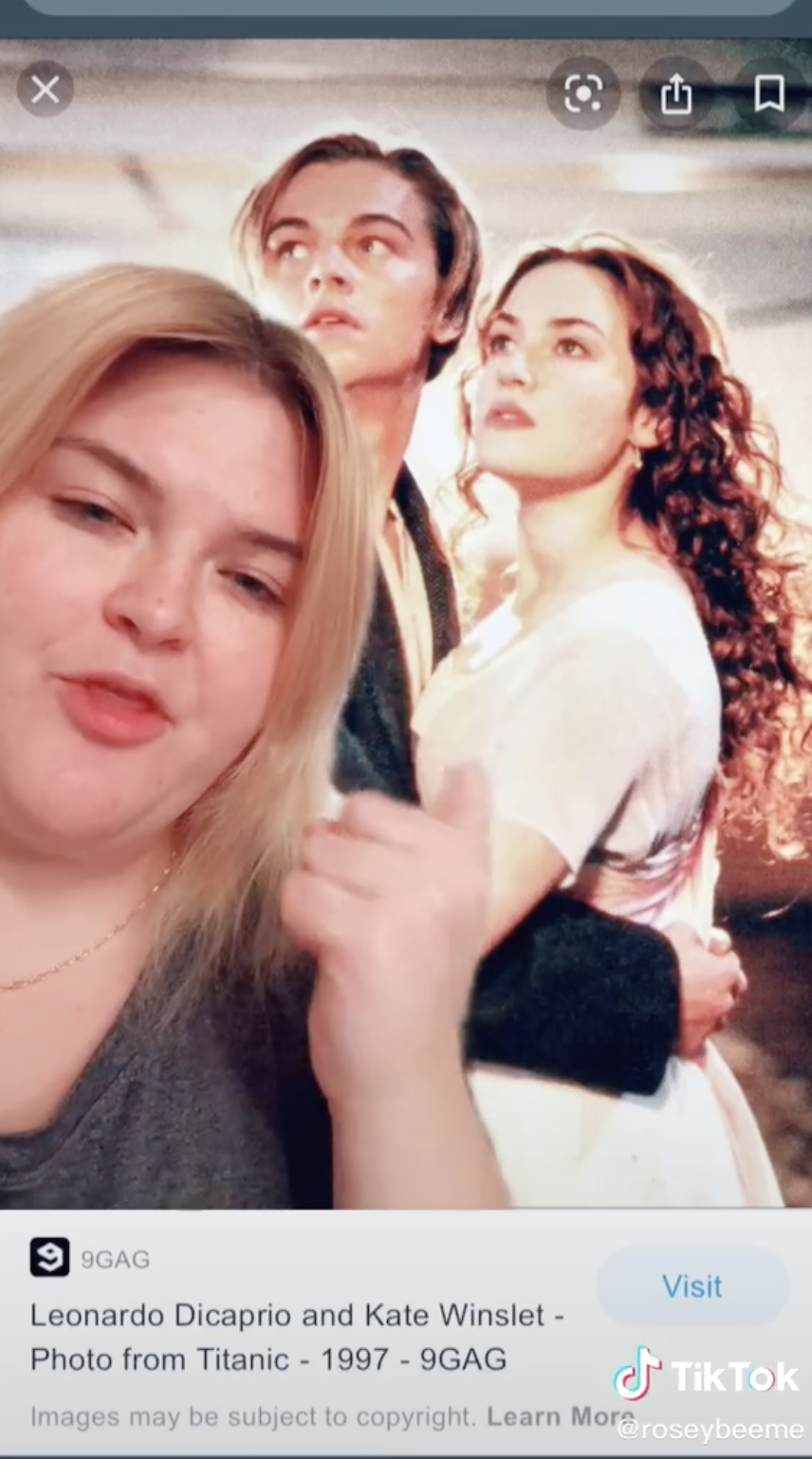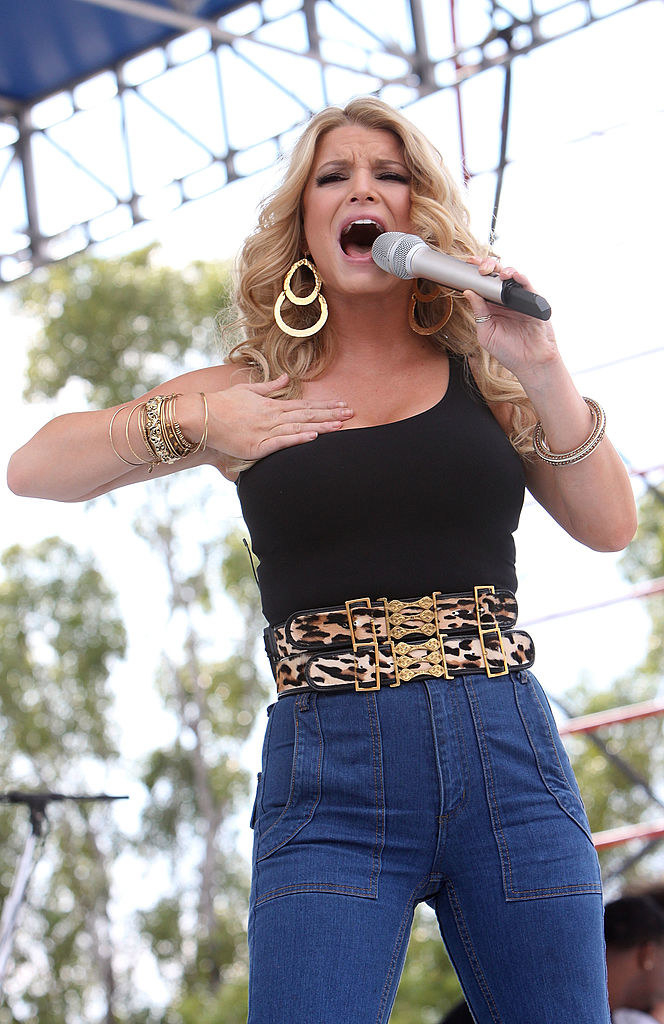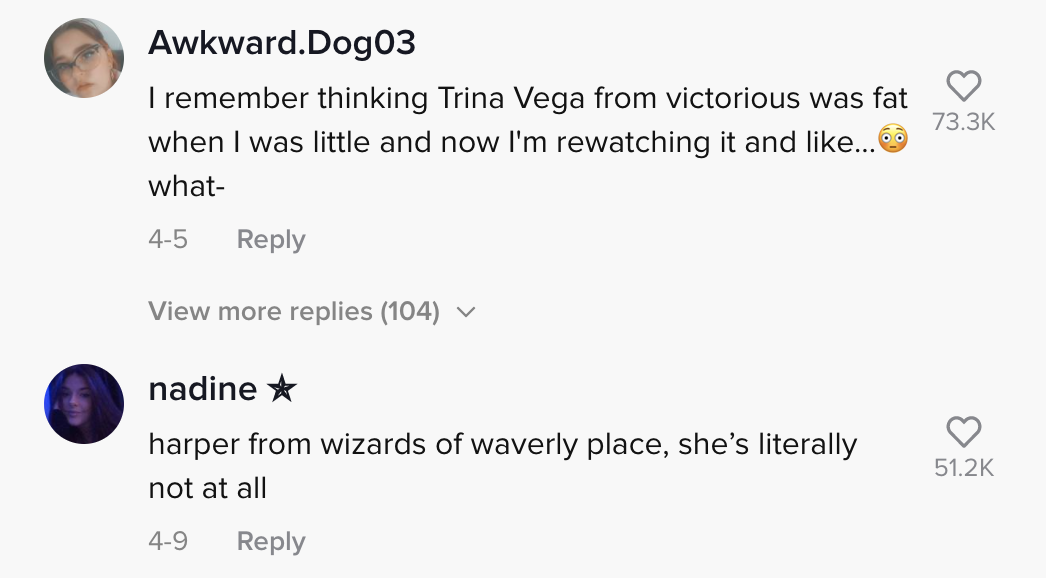Meet 32-year-old Rosey Blair, who is a plus-size lifestyle blogger and size-inclusive consultant.
She has been going viral on TikTok for her videos where she discusses the portrayal of fat people in movies and TV...and how, a lot of times, the people who were cast as "fat" characters weren't even fat:
More recently, however, she has been gaining a lot of attention for talking about how the media made us believe certain celebrities were fat when they weren't fat at all, like Kate Winslet:
"There was a time in Hollywood when this woman was laughed at in casting rooms — and referred to as 'Kate Weighs-A-Lot.' And compared to the heroine-chic models and actresses at the time, Kate was noticeably larger than what was popular. Joan Rivers even said that they both could have fit on that raft if Kate was five pounds lighter," she says in her TikTok.

In addition, she talks about how the media warped the minds of an entire generation to have a false sense of body image and be judgmental toward other peoples' bodies:
In her videos, Rosey also talks about how the media personally affected her growing up. (She shared the image of herself in 2009 on the left.) "When I saw that picture of Jessica, I thought to myself, 'Oh boy! She's disgusting,' because I was manipulated by the media. I remember the full media blitz that occurred to emphasize that she had really let herself go and was fully disgusting."
The number of celebrity women who were shamed about their bodies by the media — and even fellow industry professionals — is truly sickening:
"In 2007, Tyra Banks went to the beach and had a great day. But the paparazzi were there to make sure she didn't have a great month. Soon, magazines were filled to the brim with images comparing her Sports Illustrated covers to just a regular, fun day at the beach."
BuzzFeed spoke to Rosey, who said that during quarantine, she started rewatching a bunch of films from her childhood. "I've been plus-size my entire life, so I would always mentally note when I saw someone onscreen who resembled me, or when the media referred to them as being larger. I was shocked to see that some of my old plus-size role models weren't large people at all. I wondered if this impacted the way I saw myself and other people in bigger bodies, so I started making TikToks exploring this idea. As it turns out, a lot of other people had the same misconceptions," she said.

In the '90s, there wasn't a lot of plus-size representation in Hollywood. "I felt seen and acknowledged when there were round-faced actresses in film and television. Most memorably, people like Brittany Murphy in Clueless and Ginnifer Goodwin in Mona Lisa Smile. It's funny how there was such a lack of actual plus-size actresses that we all misremember round-faced women as being plus-size."
Rosey thinks everyone is just now starting to realize how much the media has altered our thinking. "As I searched through images of Jessica Simpson during the infamous chili cook-off, I was really astounded at how the photos did not match my memory of the event. I saw her as a plus-size woman who was around my size at the time — which was 18-20 — and was shocked to see how much thinner she actually was."

However, as you can see in the comments of her videos, the negative perceptions people have of body image are still very much a thing — largely because of how the media portrays celebs. "I think traditional media has a long way to go. It's important for the media to know that everyone has stories, not just people who can fit into haute couture on a red carpet," Rosey said.

